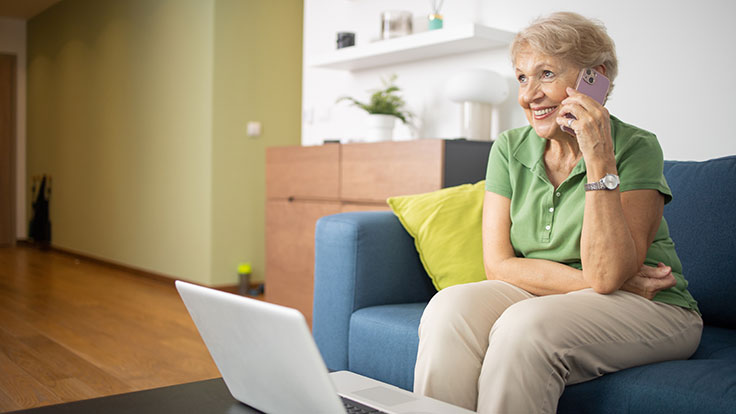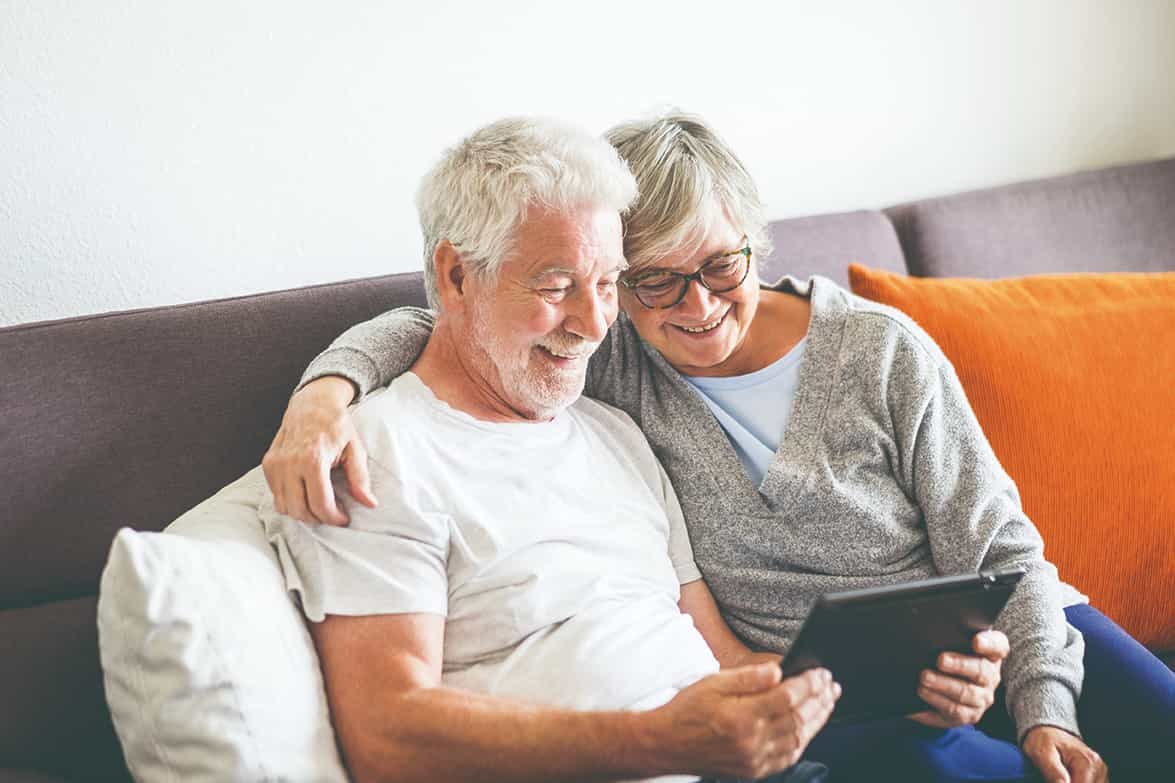Coping with loneliness in later life
Last updated 26th June 2025
5 min read
What is loneliness?
Loneliness is a feeling that most of us will experience at some point in our lives. The way we experience loneliness will be different to everyone.
It can affect us when we're physically alone, or when we're surrounded by people.
As we get older, we're especially vulnerable to loneliness and isolation. More than two million people(www.nhs.uk opens in a new tab) in England aged 75 and over live alone.
There are lots of reasons why we might feel lonelier and more isolated as we get older. Retirement, bereavement, smaller social circles and illness are just some of the changes in life that mean we can experience social isolation(www.ncbi.nlm.nih.gov opens in a new tab).
Whatever the circumstance for you, there are practical ways to deal with it and get support.
If our social contact is limited for reasons beyond our control, this can come as a sudden shock to us and the feelings of loneliness can be quite intense. The pandemic caused many of us to experience these feelings.

What causes it?
Being limited to the house, especially if you live alone, can create strong feelings of loneliness.
However there doesn't always need to be a trigger for someone to experience loneliness. Other life events can mean people feel lonely, such as:
- Moving to a new town or city
- Experiencing a loss
- Developing health issues
- Retiring
There are many other causes of loneliness and one trigger for one person may not be the same for another.
How loneliness can affect people
Loneliness is a feeling which can be emotionally painful. However, it can affect people in different ways.
We are not destined to experience loneliness as we age – however, it is more likely to affect pensioners(www.nhs.uk opens in a new tab) due to reasons mentioned above.
Studies(www.medicalnewstoday.com opens in a new tab) have noted that loneliness can have an impact on our immune system, quality of sleep and risk of heart disease.
Other research(www.campaigntoendloneliness.org opens in a new tab) has shown that loneliness can increase your chance of dying by 26%.
It can also be linked with mental health problems. Feeling isolated or lonely can make mental health problems worse(www.ncbi.nlm.nih.gov opens in a new tab). And existing mental health problems may worsen the feeling of being lonely.
Loneliness increases with age(www.vox.com opens in a new tab), so it's important to try to take steps to combat it.

What can I do?
If you are experiencing feelings of loneliness whilst unable to leave the house, here are some things you could do to help.
Practical advice and support
There are many types of support service available that could be useful. For example:
- Charities that offer befriending services. There are lots of charities that offer telephone befriending services(www.ageuk.org.uk opens in a new tab). These put you in touch with volunteer befrienders who can call at a time convenient to you for a friendly chat. Some organisations will try to match people with a volunteer who has similar interests. Organisations include:
- Online communities – there are communities online that are free to join which allow people to chat with others who have similar experiences. It is always important not to give away any personal information (like bank account details). Communities include:
- Use social media to make connections. Social media can have a negative impact on how people feel, but it can also be used to make meaningful connections. Facebook(opens in a new tab) has lots of groups people can join to discuss similar interests.
- Create a list of activities you can do alone. Using the time you spend by yourself to create something positive will help with feelings of loneliness. You could try crocheting, painting, watching films, or writing, to detract from loneliness.
- Find an exercise suitable for you. You don't have to do a full body workout, but exercise and physical activity can have a positive impact on your mood and release endorphins, which are happy hormones. If you can step outside for a walk, that might be an easy way to get some physical activity. Alternatively something like a fitness stepper might be of use. And there are also a variety of online resources to help with workouts, such as:
- Practise mindfulness. It sounds like the last thing you might want to do, but learning to be on your own and enjoying your own company will make you feel less lonely when you can't be around other people. Mind(www.mind.org.uk opens in a new tab) has more information.
- Consider a pet. It won't be for everyone, but animals carry a lot of benefits and can help with feelings of loneliness. The unconditional love they provide can be a great comfort when you're feeling low.
Other tips for dealing with feelings of loneliness
- Try to open up to people if you can. If there are people (friends or family) you could speak to, it's important to let them know how you're feeling. They make be able to help, or re-arrange their schedules to speak on the phone more often.
- Look after yourself physically. Make sure you eat regularly and healthily as diet has a big impact on our moods. Try to get enough sleep and a good quality of sleep.
- Get some air. Having some fresh air and seeing some nature can help with wellbeing.
- Accept that it is only temporary. Understanding that loneliness is a temporary feeling and that you won't always feel that way can be helpful to your outlook.
Useful resources for support:
- Mind(www.mind.org.uk opens in a new tab)
- Age UK(www.ageuk.org.uk opens in a new tab)
- British Red Cross(www.redcross.org.uk opens in a new tab)
- Re-engage(www.reengage.org.uk opens in a new tab)
- Friends of the Elderly(www.fote.org.uk opens in a new tab)
- The Silver Line(www.thesilverline.org.uk opens in a new tab)
The thoughts and opinions expressed in the page are those of the authors, intended to be informative, and do not necessarily reflect the official policy or position of SunLife. See our Terms of Use for more info.
